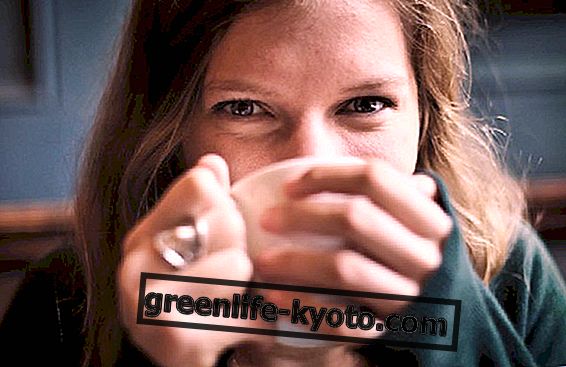
Reported in large letters, the definition of "degrowth" appears in the homonymous website dedicated to it, " degrowth sf Reflective turn for relational, personal and collective research of a quality of life detached from the obsession for growth and the race for production, possession and consumption of goods ". But let's find out more about the subject.
"Degrowth" what it means
"Degrowth" has also long been synonymous with a series of movements, communities, ways of thinking about life on a political, economic and social level that favor the controlled, selective and voluntary reduction of economic production and consumption, with the aim of establishing relationships of ecological balance between man and nature, as well as equity between human beings themselves.
Among the theorists of possible and desirable change and those convinced that happy degrowth is only a utopia, let us try to see clearly and understand how, in our own small way, it can be implemented.
Certain that the topic comes out extensively from a simple web page and that discussions between experts in the sector would be better placed at the table.
Degrowth and its pioneers
Economist Serge Latouche is one of the main proponents of degrowth, one of the first to shout loudly at phrases like " we are producing and consuming too much! We must stop! ". Yes, because the main point they want to highlight the theorists of this movement, which started at the dawn of the second millennium, is the need for a turnaround, a turn, or rather a reverse gear, compared to some behavior patterns and certain habits.
Degrowth is synonymous with fair, equitable and necessary consumption, slowness and simplicity of living, of supporting natural rhythms and their harmonious intersection with those of man, in the perspective of social justice and self-government of the territories, otherwise voted, according to the same authors, to self-destruction.
Not only Latouoche: those in favor of degrowth can also follow the thought of Tim Jackson, economist and professor of sustainable development at the University of Surrey, England; they can know the words of Berlinguer and Pasolini (in "Scritti corsari", for example); read "The conviviality" of the Austrian philosopher Ivan Illich; André Gorz, and, back in time, thinkers such as Rilke, Thoreau, Rousseau and last, but not least, Castoriadis, whose thought can be deepened by reading Latouche's text "Cornelius Castoriadis, radical autonomy". These are just a few.
Because it is a feasible reality
Those who believe that degrowth is a feasible, happy and feasible reality has already implemented a series of behaviors, which are called:
- organic farming, synergic agriculture, permaculture;
- solidarity purchasing groups (GAS), ecological communities, ecovillages, cohousing, car sharing, sharing economy;
- energy saving, critical consumption, recycling, barter
and many other names yet.
It is not difficult to understand, looking around, that there are people, often younger, who have "naturalized" certain positive and sustainable behaviors; while it is the old generations, those accustomed to greater consumerism, those generally more reluctant to change, less "social" and less willing to share.
The subsequent reflection, beyond the behavioral choices of each one, concerns however the fact that certain ways of acting and sustainable orientations of life still fall within the current market logic . Therefore, rather than decreasing, one could perhaps speak of " parallel and sustainable growth " within a market that has certain rules. Otherwise it is part of "other realities", communities and groups of people who have decided to become estranged from the current market logic ( Auroville in India is a great example).
We therefore have to ask ourselves: is true change a radical revolutionary turning point or can we proceed step by step even within given market logic, gradually diminishing the mechanisms that do not work from within?
Here is Marco Aime's interview with Serge Latouche, who can resolve many doubts. Furthermore, for the same purpose, Latouche directs the "Precursors of degrowth" series (Jaca Book).
You may also be interested in the interview with Cinzia Picchioni, author of the book "Advice against purchases"
Because it is an unattainable utopia
Reading opposing positions on the web, there are those who consider Latouche's proposal "a proposal for a disconcerting conceptual poverty, so much so as to ask how he got such an idea to attract so many followers" (quoted by Il Foglio), and c 'it is those who doubt and ask themselves if by chance "degrowth" is not one of the many "amoeba words" (cited by Il Corriere) that fill the current vocabularies.
Degrowth as a term and definition does not please many, the content is good, but the container clashes. Those who do not believe in "back to the fields and live in agriculture" seem to believe instead, siding with Voltaire, that progress has led to discovering and learning many new things, useful to society. In short, not everything has to be thrown away. That the most suitable term would perhaps be "sustainable growth", not decrease.
Which, in particular, Italy has so much to work to modernize and keep up with other countries, for example northern Europe, where certain models work and are welcomed by all citizens. Perhaps it would be fairer to work on effective social growth, wondering why, for example, car sharing in Milan works, while in other places or cities on the peninsula it is still a distant utopia.
The degrowth is therefore an impossible utopia of a Roussionian style for many, precisely because by now we cannot stop the gears of a given economy and above all because not the whole society (Icelanders aside!) Is ready to do so.
How to feel like advocates of healthy progress
The fact remains that, in practical life, in everyday life, it is not always easy to become the protagonists of a sustainable growth, degrowth or healthy progress.
Often those who try it are accused of being an ecologist fanatic (so much the ecology is also a business!) Or of having the product at zero kilometer; often the rhythms of life lead the man to stop, returning from work, to the supermarket along the road and buy the packet of salad ready there, rather than going to the organic market on Saturday or refueling at the farm by the farmer at certain times.
Or the same working conditions oblige you to use the car to move, instead of encouraging the use of local vehicles or implementing the use of the web to work from home. There is still so much that rails against everyone's best wishes. But there is also so much that can be done. Undoubtedly, arm yourself with patience, try to slow down your own pace, consume less but better, impact less than you can on the territory. Then talk, turn the voice, communicate, inform: buy the detergent, not the plastic that contains it!













